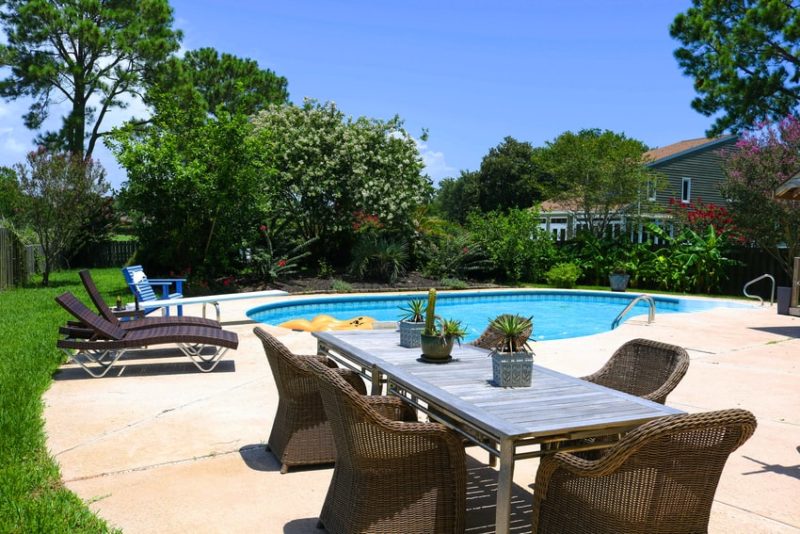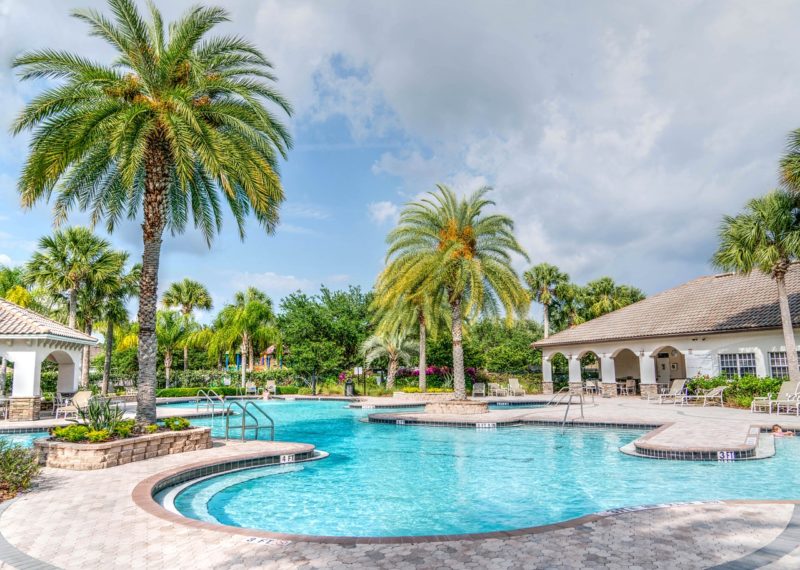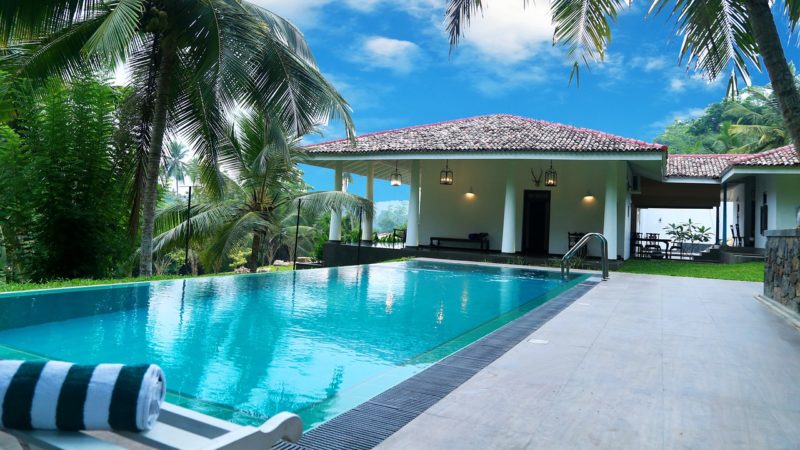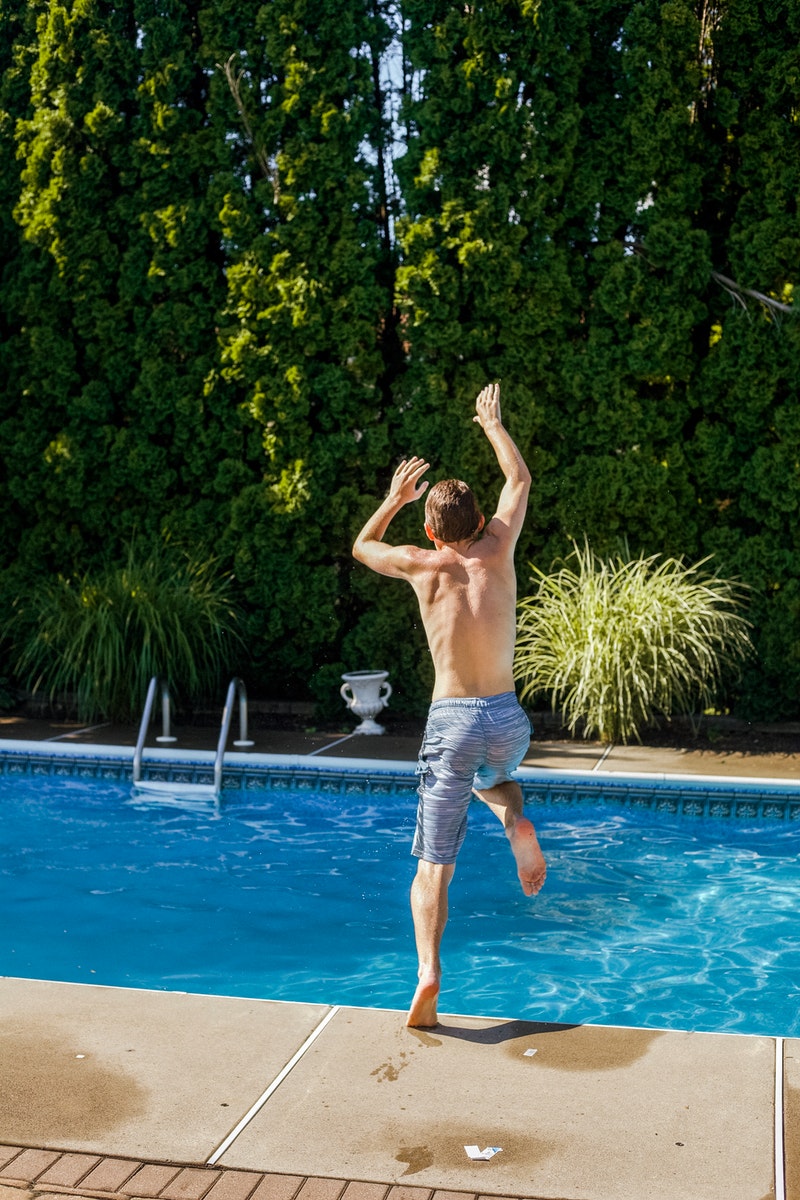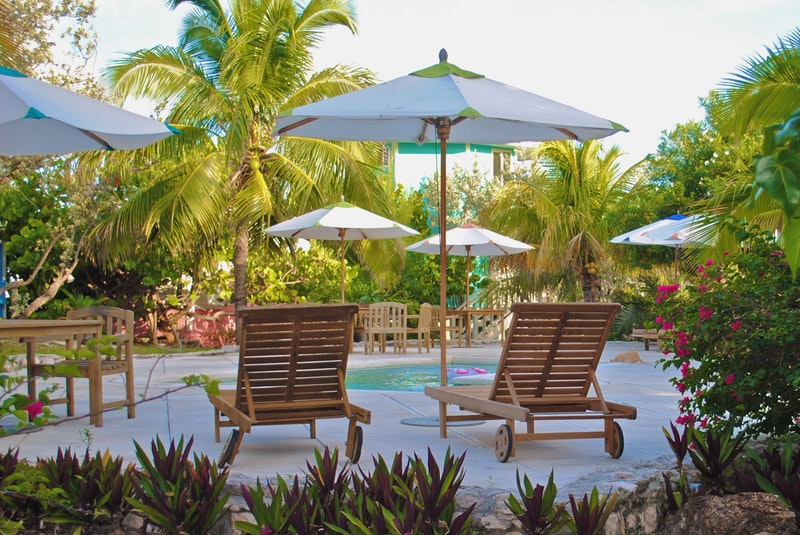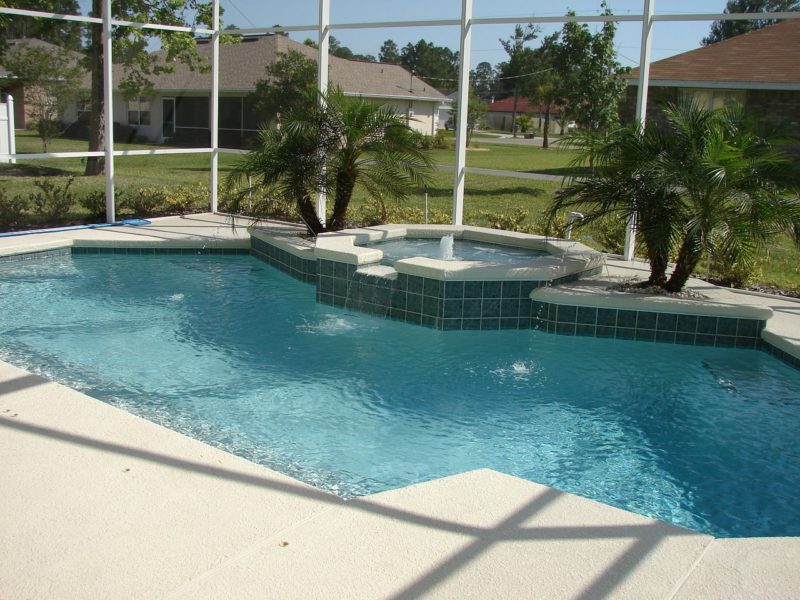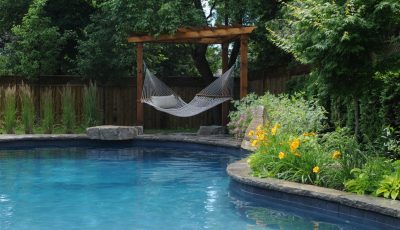Pavers VS. Concrete: Which one is better for your pool decking?
Choosing the suitable pool deck material may get you stuck between pavers and concrete. Are you? Decide on what is the better choice for you.
Today’s post is your 411 to comparing pavers vs. concrete pool decks.
The Pool Comparison: Pavers Vs. Concrete
Before diving deeper into pool comparison, cost, benefits, and steps to install, define pavers and concrete first.
Material Definition
Concrete. Concrete is a sturdy material. It consists of comet mix, aggregate, limestone, and mixed using water. You can see beneficial results of concrete pool decks when you compare them to tiles that come in pieces. Concrete pools, however, have seamless monolith structures.
Often it comes in a grey outer layer. Decorative resurfacing methods apply to concrete decks to achieve beautiful pool aesthetics.
Pavers. Pavers consist of stone and brick. Sometimes it’s made of concrete, too—the reason why such comparison exists between the two materials. You can also say that paver is a concrete material. Houzz.com shows in detail the feature of precast concrete that looks like pavers. The only difference is that pavers come in separate pieces that you install piece by piece close to each other.
Some various material types and patterns are typical for pools. Some of them are:
- Travertine
- Concrete pavers
- Flagstone
There are also ranges of colors and textures to choose from for the pool decks with these options.
The Benefits: Concrete Vs. Pavers
Installation
Concrete
- The concrete comes out as one single unit of flooring.
- The outcome is a seamless, polished surface.
- The process is quick, with just having to pour the mix over the surface.
Pavers
- Pavers are installed piece by piece. Thin gaps exist from one another. Making the pavers mimic tiles. It may take time to put each piece together.
Patterns
- Concrete pool decks can enhance their appeal with stamps and stamped overlays. Stamped patterns offer beautiful natural designs that replicate the look of wood, slate, even bricks.
- Pavers allow you to create various designs, which can take on the look of wood, slate and have many color combinations.
Maintenance
- One of the best benefits of concrete pool decks is that its easy maintenance.
- You may notice that the downside of pavers is growing weeds between its gaps.
Durable
- Concrete pool decks are also known for their durability. Many users and pool owners choose concrete for its lifelong toughness.
- Pool areas take a lot of beating from heavy use and constant foot traffic from avid pool-goers. You need tough decking that can withstand all these factors.
- Pavers is undeniably one of the flooring materials known for durable functions. It makes sense since the material has concrete on it.
- Having it in attachable pieces over pool decks makes it resist impact, breakage, and dents.
- Pavers have smooth sharp edges that make it hard to form cracks when heavy objects hit the surface.
Surface Functions
- Concrete offers the pool deck awesome slip resistance. Especially if you add over it decorative resurfacing, the functions further improve.
- Cool decking is possible with concrete. The material is known for its cold texture. It will, even more, repel heat when you resurface pool decks with a spray knockdown finish.
- The structure of pavers sure does make the surface non-skid and durable.
- Also, pavers work so well among pools since the material that makes them will not absorb heat. The paver pool decks make great cooling decks as well.
The Pros and Cons
This next topic details the advantages of pavers and concrete. To make clear distinctions of each benefit, the following phrase gives the cons or downside of the other material.
Pavers Advantages and Concrete’s Cons
- Natural Beautiful Pieces. When you see pavers, the first thing you will notice is how natural looking it is. It has one of the most beautiful natural aesthetics commonly used among outdoor floors.
Concrete can do the same. A standard method known as stamping offers the natural look of raw earth materials like wood and slate. However, concrete offers fewer designs and patterns due to the process it takes to pour the concrete. - Offers many textures, shapes, and patterns. It is enjoyable to use pavers. It allows the installer or the user to form irregular patterns. Sometimes you can opt to cut out paver pieces to achieve a desired curb or outline along the exterior of the decks.
Concrete will not fall further behind paver in terms of styles and patterns. But, using concrete will limit you to adjust the surface in a short time. Unlike pavers which you can change tiny parts as you like. - Does not need a curing period. You will surely want to have pavers as your pool decks if you want to avoid prolonged curing time.
Concrete needs at least a week to complete curing before the pool decks are ready to use. - Damaged spots on pavers are easy to fix. Grading is a common issue with pavers. If one piece did not settle well, the contractor or installer would readjust that one piece or area only.
When concrete pool decks crack, you need to resurface them. It also takes you time deciding if you will have a professional flooring installer fix it and determine the sources of cracks and other damages.
Concrete’s Pros and The Pavers’ Disadvantages
- Concrete is easy to install. Concrete pools are best for commercial uses. This is most especially if you will offer a public swimming area. The fast installation of concrete pools lets business owners save time and prevent downtime from keeping their trade going.
Pavers, on the other hand, take time and follows a lot of steps to install them. - Concrete is easy to maintain. Concrete decks outwit other pool decking materials in terms of cleaning, repair, and maintenance. A concrete pool deck damage repair is not costly at all. It is because the decks are sturdy enough to withstand all forms of damage.
Cleaning the decks will only require you to use simple cleaning tools. Resurfacing with concrete overlay does not follow complex steps. These processes also involve using simple materials that you can access and also use for DIY repair.
Cleaning around pavers for pool decks will also take a lot of time and energy. The common issue with pavers is that weeds could grow n the gaps. You need to manually pull out the grass and stems sprouting up on the surface. Or, you have to hire cleaners to do the cleaning for you. Concrete is the better option if you want to limit weeds growing around your pool. - Concrete Decking Cost. All in all, when you compute the final cost, contrite pools cost less. It has lesser repair and cleaning requirements add to that the inexpensive material being used. The average price for a concrete pool deck is $12 to $17 per square foot. You can estimate a total of $1700 for basic concrete pool decking with 100 square metres.
Compare this cost to the pavers. The process needs several steps and many kinds of materials to purchase before a paver sits on the pool deck. Suppose you have 100 square feet to install pavers. You will pay around $1500 to $2500 in total.

